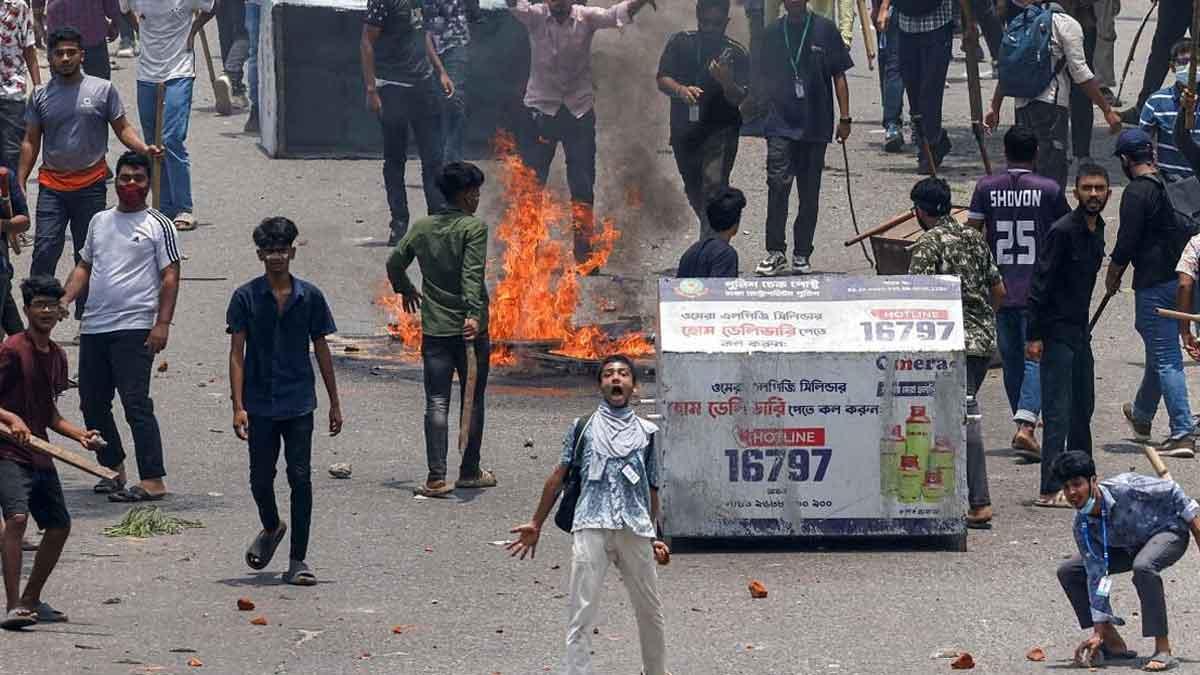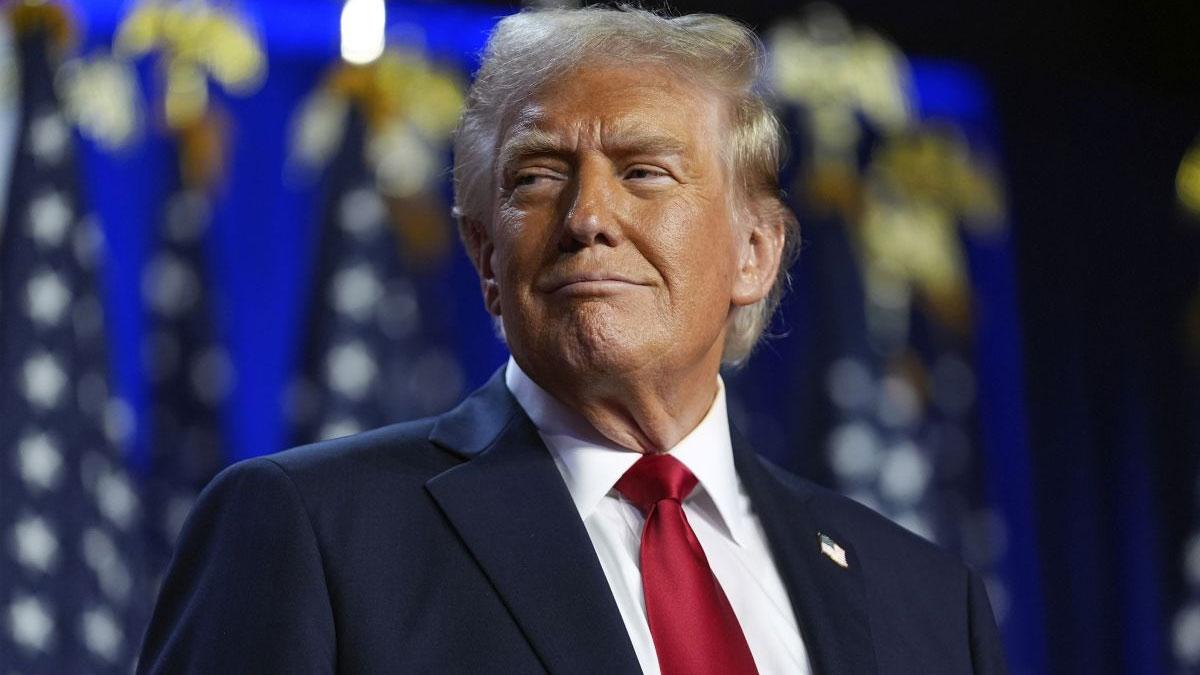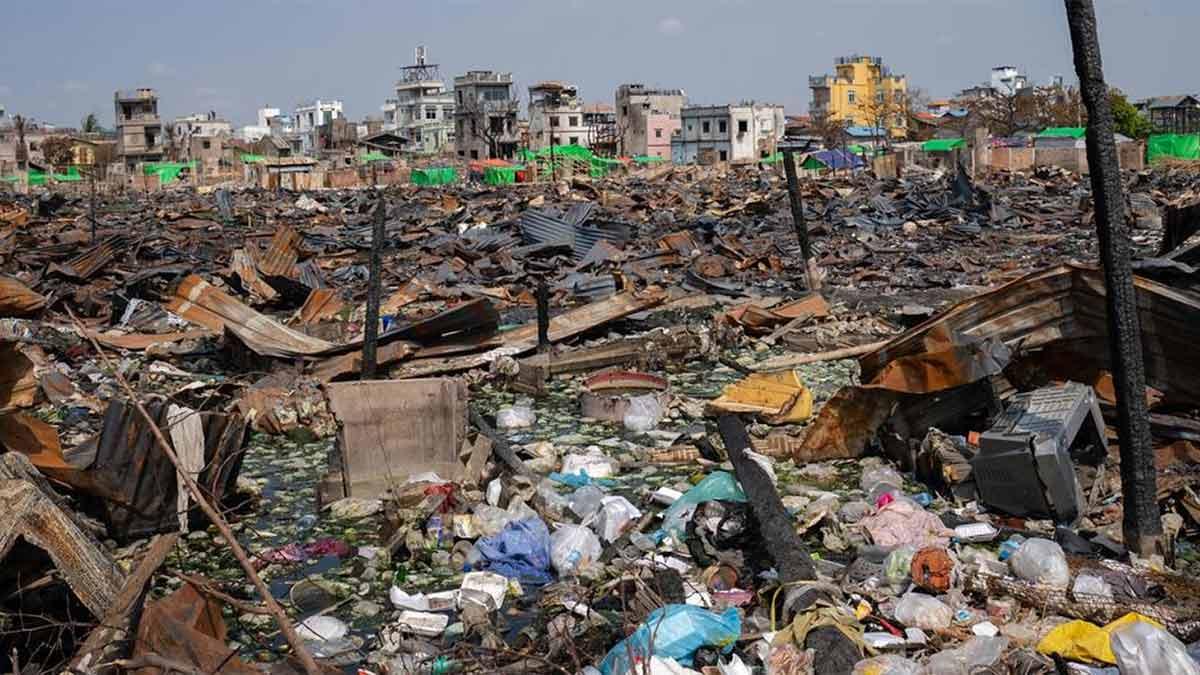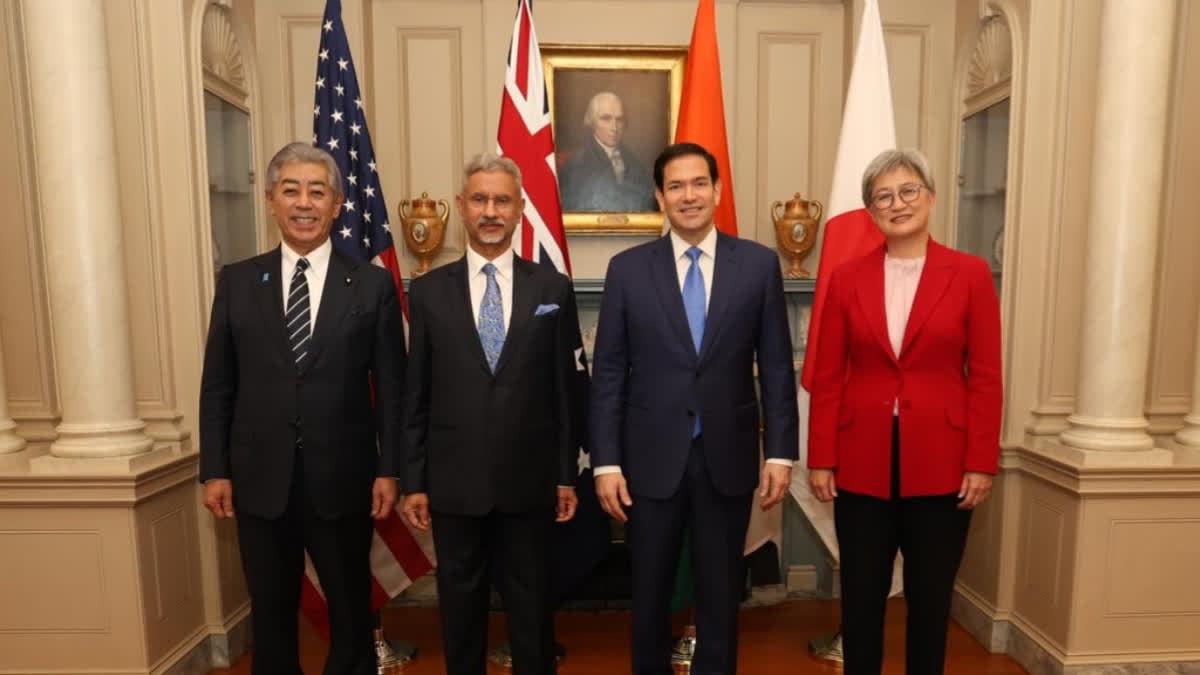A least 18 more individuals lost their lives and over 2,500 were injured in Bangladesh, according to media reports, as violence intensified in the capital Dhaka and other regions amid student protests calling for reform of the quota system for government jobs. This brings the total number of fatalities to 25 since the protests began.
Reports indicate that protesters besieged the state-run Bangladesh Television Bhaban in Rampura, Dhaka, causing damage to its front, setting several parked vehicles on fire, and trapping some staff, including journalists, inside.
For more than a week, university students across Dhaka and other cities have been rallying against the quota system in public sector jobs, which includes reservations for the relatives of war heroes who fought for Bangladesh's independence in 1971.
The Daily Star reported, “At least 18 people were killed and more than 2,500 were injured in today’s nationwide clashes between protesters and law enforcers and ruling party supporters.”
Prothom Alo, a widely-read newspaper, had earlier stated, “There are reports of 11 deaths. Nine occurred in Dhaka, one in Savar, near the capital, and one in the Madaripur district in the southwest.” Somoy Television reported that police were using rubber bullets, tear gas, and sound grenades to disperse the protesters.
Major confrontations between demonstrators and police occurred in the Uttara area, home to several private universities.
Authorities have not yet confirmed the identities of the deceased, though most are believed to be students. Earlier in the week, six people, predominantly students, were killed on Tuesday, with another death reported overnight, raising the total death toll to 18 since the protests began.
The escalation of violence led to the suspension of metro rail services in Dhaka and railway connections to and from the capital from Thursday afternoon. The government also ordered a shutdown of mobile internet services to control the unrest. The Bangladesh police website was inaccessible, and the ruling Awami League’s student wing, the Bangladesh Chhatra League, had its site hacked.
Border Guard Bangladesh personnel were deployed nationwide, including in the capital, to maintain order. Government offices and banks remained open, but attendance was sparse due to limited public transport, and many offices instructed staff to work from home.
Protesters vowed to enforce a “complete shutdown” nationwide following days of demonstrations and clashes, including incidents involving ruling Awami League-backed student activists that resulted in at least seven deaths on Tuesday.
Initial reports suggested that Thursday’s violence escalated when ruling party student activists allegedly confronted the protesters with bricks and bamboo sticks.
Law Minister Anisul Huq announced that the government would engage in dialogue with the protesting students and that Prime Minister Sheikh Hasina had assigned him and Education Minister Mohibul Hassan Chowdhury to lead the discussions. He also mentioned that a judicial investigation committee, headed by High Court judge Khondkar Diliruzzaman, had been formed to probe the violence and urged protesters to call off their demonstrations.
However, Students Against Discrimination, the leading group behind the current protests, dismissed the government’s offer as insincere, accusing it of failing to address the violence committed by party activists. A spokesperson for the protesters stated that they no longer sought dialogue and demanded an immediate cancellation of the quota system, which currently reserves 56% of government jobs. This includes 30% for descendants of 1971 Liberation War fighters, 10% for backward administrative districts, 10% for women, 5% for ethnic minorities, and 1% for the physically challenged.
Every year, around 3,000 government jobs become available for nearly 400,000 graduates. The protesters argue that the quota system prevents meritorious students from securing top government positions.
In a televised address on Wednesday, Prime Minister Hasina urged protesters to remain patient and have faith in the Supreme Court, which is currently reviewing the matter. “I believe our students will get justice (in the apex court). They will not be disappointed,” she said.
The Supreme Court has scheduled the case hearing for August 7, and the law minister indicated that the government would petition for an expedited hearing to resolve the issue more swiftly.
Read also | Joe Biden should consider pulling out of US presidential race: Barack Obama
Read also | Kremlin Labels NATO's Growing Presence in Black Sea as a Security Concern


















